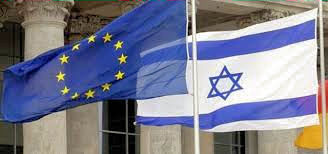
In July 2013, the European Commission issued
guidelines stipulating that Israeli organisations will no longer be eligible to receive EU-funded grants or loans unless they certify that they originate within Israel's 1967 borders and do not operate in the Golan Heights, the Gaza Strip or the West Bank including East Jerusalem.
These rules operated from the start of the EU's 2014 financial year.
The Guidelines are intended to force Israel either to accept that it has no sovereign rights in any part of the Occupied Territories, or else to forfeit the prospect of further participation in EU-funded cooperation research, including the Horizon 2020 programme.